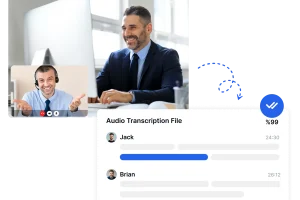
Viruses are all around us. As Dr. Kevin Dalby explains, humans can coexist with some of these viruses without any harm being done, while others can have catastrophic effects on the human species.
Viruses have been around for millions of years and have mutated along the way. Many people wonder why they do this and how they do it.
Below, Dr. Kevin Dalby discusses some of the reasons why viruses mutate.
Reason #1. Every Virus Changes
The first thing to understand about viruses is they need a host if they want to survive. Just like cells in the human body, a virus can’t live on its own because it isn’t a living thing.
When a virus enters a body, it will start to reproduce to spread. It’s how it survives. The more that a particular virus circulates among a population, the more it’s able to change.
It’s important to know that all viruses will change, but they don’t always do so at the same rate.
Reason #2. Simple Errors Can Occur
Mutation in a virus can happen purely by error. Dr. Kevin Dalby explains that when this happens, it’s as if the virus had a typo when it was copying data as it was trying to grow. Mistakes like this do occur in nature all the time, and viruses are a prime example of it.
Reason #3. It Can Feel the Pressure
Another reason for virus mutation is that some cells within the human body could be putting pressure on the virus. As a virus seeks to survive, it changes to “outrun” the human immune system.
At other times, it may enter a body that doesn’t have a great immune system for fighting that virus. Sometimes, this person could be called immunocompromised. In these cases, the virus mutates as it wonders how and when the body will eventually attack it.
Reason #4. A Vaccine Could Force the Change
The final reason for the mutation of the virus is the introduction of something that directly fights it, such as a vaccine.
When cultures adopt vaccines quickly, viruses have a better chance of being eradicated. This is because it won’t have the time or opportunity to mutate fast enough to avoid whatever the vaccine was designed to stop.
But, when vaccine adoption is slower, it gives the virus a chance to mutate, which then results in what is sometimes referred to as new “variants.” The vaccines still may work in these situations, but in the meantime, the virus has changed as much as it thinks it needs to so it can continue surviving.
Viruses that survive over time have to mutate to remain viable. And even though it isn’t a living thing, a virus will still do everything in its power to survive.
About Dr. Kevin Dalby
Dr. Kevin Dalby is a professor of chemical biology and medicinal chemistry, currently working on cancer drug discovery. At the College of Pharmacy at The University of Texas, he is examining the mechanisms of nature and cancer to develop new treatments and teaching and motivating students to conduct research. Dalby is optimistic about the future of cancer treatments.
David Smith was born and raised in Calgary Alberta and loves to share his passion for health and fitness with others. Apart from running his own podcast, which uploads weekly shows that covers current health trends, he spends his time canoeing and backpacking. David recently spent a summer working at the CFIA as a health supplement reviewer. In regards to academics, David studied kinesiology at Guelph University.





